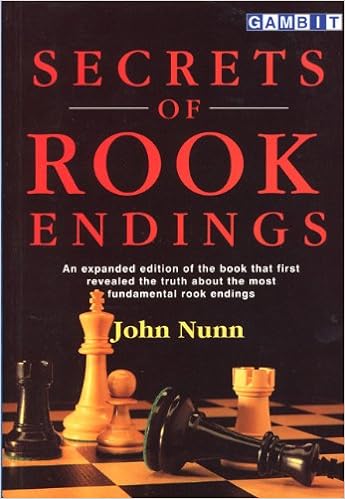Is There Danger In Giving Full Name On Dating Site
Even though you and Dan had been dating for almost a year now, you had never quite. Now send this to ten other pictures on this one site, and she will.
- The dangers of online dating don’t just include things like being ghosted or heartbroken — there are actual risks involved in meeting strangers online, and it’s important to go into it with your eyes open and alert to potential threats.
- The Risk of Giving a Phone Number in Web Dating. Online dating is still in its “adolescent” stage, and fittingly, it's still enduring growing pains. While it has shed much of its early stigma as “desperation dating,” a healthy skepticism has taken its place. People are skeptical about descriptions of jobs and lifestyles.
- Tinder Dating Site! These tips are good, but for the conversation starter I would say ask a question about the person's bio. This shows that you actually read what the other person wrote, and are interested in their hobbies/interests (like if a person says they're really into hiking, can ask how often they go hiking, or what's the best hiking spot they've been to).
A recent study indicates that 15 percent of American adults use online dating websites or mobile applications. As the number of people looking to meet new people online grows, so does the opportunity for fraud.
Some scam artists use bogus profiles to con the people they meet out of hundreds or thousands of dollars. Criminals who perpetrate online dating and romance scams use emotional appeals to quickly gain their victims’ trust and then, just as quickly, exploit it. This leaves many victims not only embarrassed but also in financial distress. It is important for online users to be on the look-out for online dating and romance scams. It can happen like this:
“Maria” signed up for an online dating service and was contacted by “Andrew,” who claimed to be an American overseas on business in Australia. Maria and Andrew seemed to hit it off and began planning a road trip for that summer when Andrew would come back to the U.S. Andrew sent Maria a check for $5,000 to cover the cost of their trip, but then suddenly asked her to send $4,500 back to him because he needed money for rent after being laid off from his job. Maria deposited the check and sent the money, but was soon contacted by her bank, which told her the check was bad and she had to repay the $4,500. On top of losing her money, the fake “Andrew” disappeared, and Maria never heard from him again.
The Phony Profile
Romance scammers often create a phony profile. The scammer may use photos from magazines and portray himself or herself as talented and successful. Fake profiles may have discrepancies or inconsistencies, like disproportionate height and weight, or be suspiciously vague. Romance scammers often claim to be a U.S. citizen working or serving abroad, or give a similar excuse to explain their inability to meet in person.
Gaining Victims’ Trust
Online dating and romance scams often begin like any other online relationship: interested individuals exchange basic information, like their line of work, their city, and their hobbies and interests. Scammers may then ask their victims to leave the dating site and use personal email or instant messaging (IM). Con artists may express their “love” quickly and effusively, find similarities with the victim, and claim the online match was destiny.
This is all a build-up for the scam artist’s real goal: conning a victim out of money. Once the victim becomes attached, the scammer looks for ways to dupe the person into sending money, which can happen in two basic ways. In the first scenario, the scammer may indirectly ask for money. For instance, some romance scammers express concern about their financial situation or ability to visit the victim in the hopes that a person will offer to send funds. In the second instance, the scammer asks for money directly. A scammer may beg for hundreds or thousands of dollars, claiming a family member became suddenly ill, he or she was robbed, or the person is having difficulty obtaining travel documents after spending all his or her money on a plane ticket to visit you. A victim may even get a call from an accomplice who claims to be a lawyer or doctor to lend credibility to the tale.
Be wary of sending money to someone you have never met in person, especially via a wire transfer service, like Western Union or MoneyGram, or a prepaid money card, like Green Dot. Once a person wires money to a foreign country, the money is generally unrecoverable.
Protecting Yourself

Online dating and romance scams are sophisticated operations that are typically conducted by criminal gangs. Con artists share information about victims and may target victims more than once. Some scammers induce victims to share personal information or images and then threaten to post or distribute them to the friends, family members, and employers if the victim refuses to pay.

The Attorney General’s Office encourages people to exercise an appropriate level of caution when looking for a relationship online and to be careful about sharing personal information and photos with people they have never met. The following are some tips on how to protect yourself from being scammed and what to do if you become a victim:
- Be careful about sharing sensitive personal or financial information with someone you have not met in person.
- Stay on the dating site—romance scammers ask their victims to use personal email or instant messaging to keep their schemes under law enforcement’s radar.
- When using an online dating site, use a separate username and different email account to protect your privacy.
- Be wary of “coincidental” similarities as well as inconsistencies in an individual’s story. If things don’t add up, press for details, or ask a friend or family member for their perspective. Romance scammers know that emotions can skew judgment and count on affection and attention to thwart their victims’ judgment.
- Wiring money is the same as sending cash—once the money is sent, it is generally lost for good.
- If an online prospect claims to be a United States citizen living or working in another country and asks you for help or money, refer the prospect to the local U.S. Embassy or Consulate. If you want to send money, consider a U.S. Department of State Office of Overseas Citizens Services (OCS) Trust. An OCS Trust works like a wire transfer, but the embassy or consulate holds the money until the recipient picks it up—and provides proof of U.S. citizenship.
- As a final effort, romance scammers may claim to still be “in love” when they are found out by their victims. Don’t fall for it. Report scammers to the dating website so others won’t be drawn in.
Taking Action
If you are a victim of an online dating or romance scam, take the following steps:
- Cease all contact and block phone numbers, IM accounts, and email addresses.
- Keep copies of all communications.
- Report the matter to the dating website.
- Report the matter to your local police.
- Report the matter to the FBI’s Internet Crime Complaint Center at www.ic3.gov.
- Report the matter to the Federal Trade Commission as follows:
Federal Trade Commission
Bureau of Consumer Protection
600 Pennsylvania Avenue NW
Washington, DC 20580
(877) 382-4357
TTY: (866) 653-4261
www.consumer.ftc.gov
Related Posts:
Pre-Paid Debit Card Scams
For years, scammers have duped people into wiring money using wire services. Today, scammers are increasingly asking people to pay money with reloadable, pre-paid debit cards
How to Spot a Scam
Scammers are constantly reinventing new ways to perpetrate old ploys. Whether you're contacted by phone, mail, email, text, or in-person, the following tips provide advice on how to spot a scam.
Seniors' Guide to Fighting Fraud

This guide will inform you about the common scams aimed at seniors and the steps consumers can take to thwart the swindlers.
I accidentally gave my name and address to a scammer. What can I do? Is that bad? What can they do with that information?

You encountered a quite common scam: You are supposed to perform a job, they send you a check for too much money, and you are supposed to pay them some money back. Ten weeks later the check bounces and your money is gone.
That's these people's job. They do this all day long. The success rate isn't very high, so they are busy doing this all day. These scammers might have your name and address, but if that is all there is, they can get names and addresses of 100s of people by using the phone book, and they don't.
I wouldn't say that it is impossible to turn your name and address into money, but it is hard work. So it is quie unlikely to happen.
gnasher729gnasher729First off how do you know if they are indeed a scammer?
What can they really do with that?
Well it depends on the scammer's skill and sophistication.
Is There Danger In Giving Full Name On Dating Sites

Ideally with your name and address, they would probably send you mail that attempts to scam you. For example, they might send you a check but will require you to do something in order to receive that money.
If this scammer is very sophisticated they can get your life's story with that information alone.